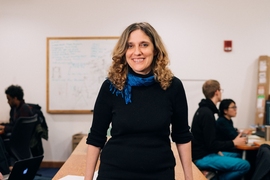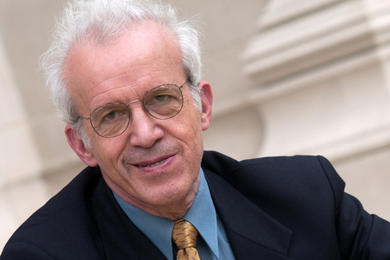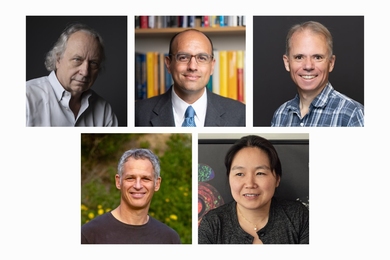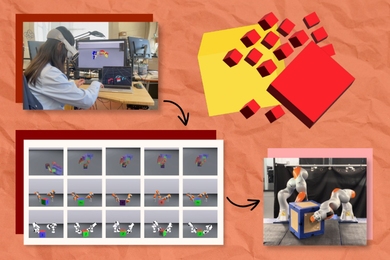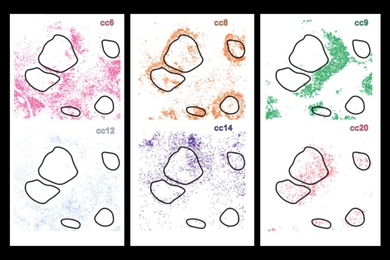Regina Barzilay, a professor in MIT’s Computer Science and Artificial Intelligence Laboratory (CSAIL) who does research in natural language processing and machine learning, is a recipient of a 2017 MacArthur Fellowship, sometimes referred to as a “genius grant.”
The fellowships carry a five-year, $625,000 prize, which recipients are free to use as they see fit. Twenty-one current MIT faculty members and three staff members have won MacArthur Fellowships, which were established in 1981 and are usually given out to roughly 25 people each year.
In accepting the award, Barzilay credited MIT for being an energizing and encouraging community.
"I have been blessed to work with amazing students and colleagues who challenge my thinking, inspire me, and give me a new perspective on research,” Barzilay says. "From my first days at MIT, it was clear to me that you don't have to conform to existing standards in the field. You are free to explore any direction you like."
The Delta Electronics Professor of Electrical Engineering and Computer Science, Barzilay does research in natural language processing (NLP) and machine learning. Her research covers multiple areas of NLP, from syntactic parsing and the deciphering of dead languages, to developing new ways to train neural networks that can provide rationales for their decisions.
“I’m rarely interested in providing yet another solution to traditional NLP tasks,” she says. “I’m most excited about solving problems not within the mainstream of the field that require new perspectives.”
She has also been active in applying machine learning methods to oncology and drug design, arguing that data-driven approaches will soon revolutionize early detection and treatment of cancer.
The MacArthur Foundation cited Barzilay for making “significant contributions to a wide range of problems in computational linguistics, including both interpretation and generation of human language.”
Barzilay joined the MIT faculty in 2003 after earning her PhD at Columbia University, where her dissertation centered on developing systems that can summarize news stories. She is the recipient of the National Science Foundation Career Award, the Microsoft Faculty Fellowship, and multiple “best paper” awards in her field.
Barzilay also co-teaches 6.036, MIT’s popular Introduction to Machine Learning course, which enrolled more than 700 students this spring. For her contributions to teaching machine learning and natural language processing, she was awarded the Jamieson Award for Excellence in teaching.
Other recent MacArthur Fellows on the MIT faculty include economist Heidi Williams (2015), computer scientist Dina Katabi and astrophysicist Sara Seager (2013); writer Junot Diaz (2012); physicist Nergis Mavalvala (2010); development economist Esther Duflo (2009); and architectural engineer John Ochsendorf and physicist Marin Soljacic (2008).

